NHS Wales: Record waiting times for 19th successive month
- Published
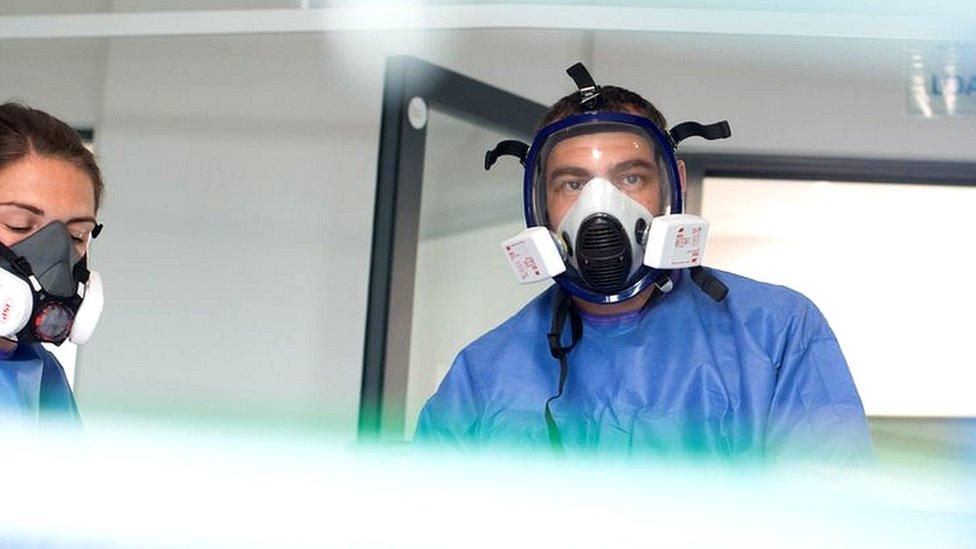
Ministers said healthcare workers should be commended for their determination to maintain high quality care to hundreds of thousands of patients each month
The numbers on waiting lists for non-urgent hospital treatment in Wales have hit record levels again.
There were 682,279 people waiting in November, with the list up by nearly 50% since before the Covid pandemic.
A&E waiting times and ambulance response times were both the second worst on record.
Health minister Eluned Morgan has warned waiting time figures for December will be "very much worse" than November.


The number of patients waiting for non-urgent NHS hospital treatment in Wales has been growing since the pandemic began.
Around 20% of the Welsh population is now thought to be waiting for a non-urgent treatment.
But the number of patients waiting the longest - more than nine months - for treatment, fell slightly, from 242,101 to 241,667 compared to the previous month.
December figures expected to be worse
The health minister said vaccination was the priority, and waiting times had been compounded by high levels of staff sickness.
"We're expecting planned care in December to be a lot worse," Ms Morgan said.
"I've made it absolutely clear I don't think we're going to be able to eat into these waiting lists and bring them down until possibly the spring.
"We are still in a situation where there are very real restrictions within our hospitals because of Covid."
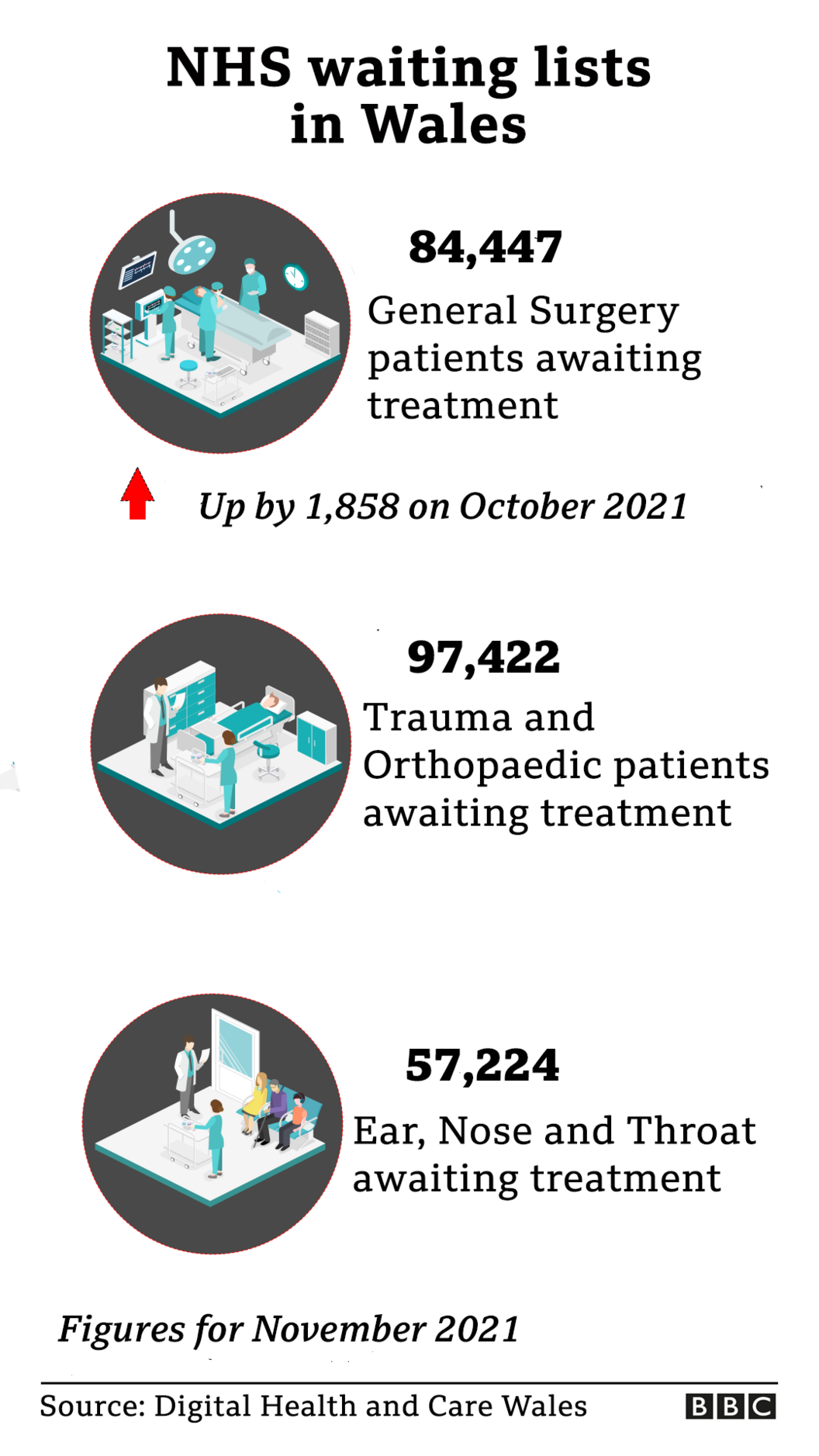

The figures for November 2021 show:
The overall waiting list for treatment now stands at 682,279.
This equates to 21.5% of the Welsh population waiting for treatment.
The waiting list figure has been climbing month-on-month since May 2020, although this was the smallest monthly rise.
The number of patients waiting more than 36 weeks - nine months - to start treatment in hospital has grown from 25,634 in February 2020 to 241,667 (an increase of 843%)
The longest waits included 53,489 people due for orthopaedic or trauma treatment - although this figure has fallen over three successive months. The overall list has stayed about the same.
Another 36,203 people have been waiting more than nine months for ophthalmology treatment - compared to 4,083 before the start of the pandemic
Inroads have been made into those waiting for cardiothoracic surgery, with numbers on the list lower now than for almost six years
Numbers waiting for diagnostic tests remained "markedly higher" than before the pandemic and increased slightly for another month
Numbers waiting for therapies are at their highest level since August 2017.
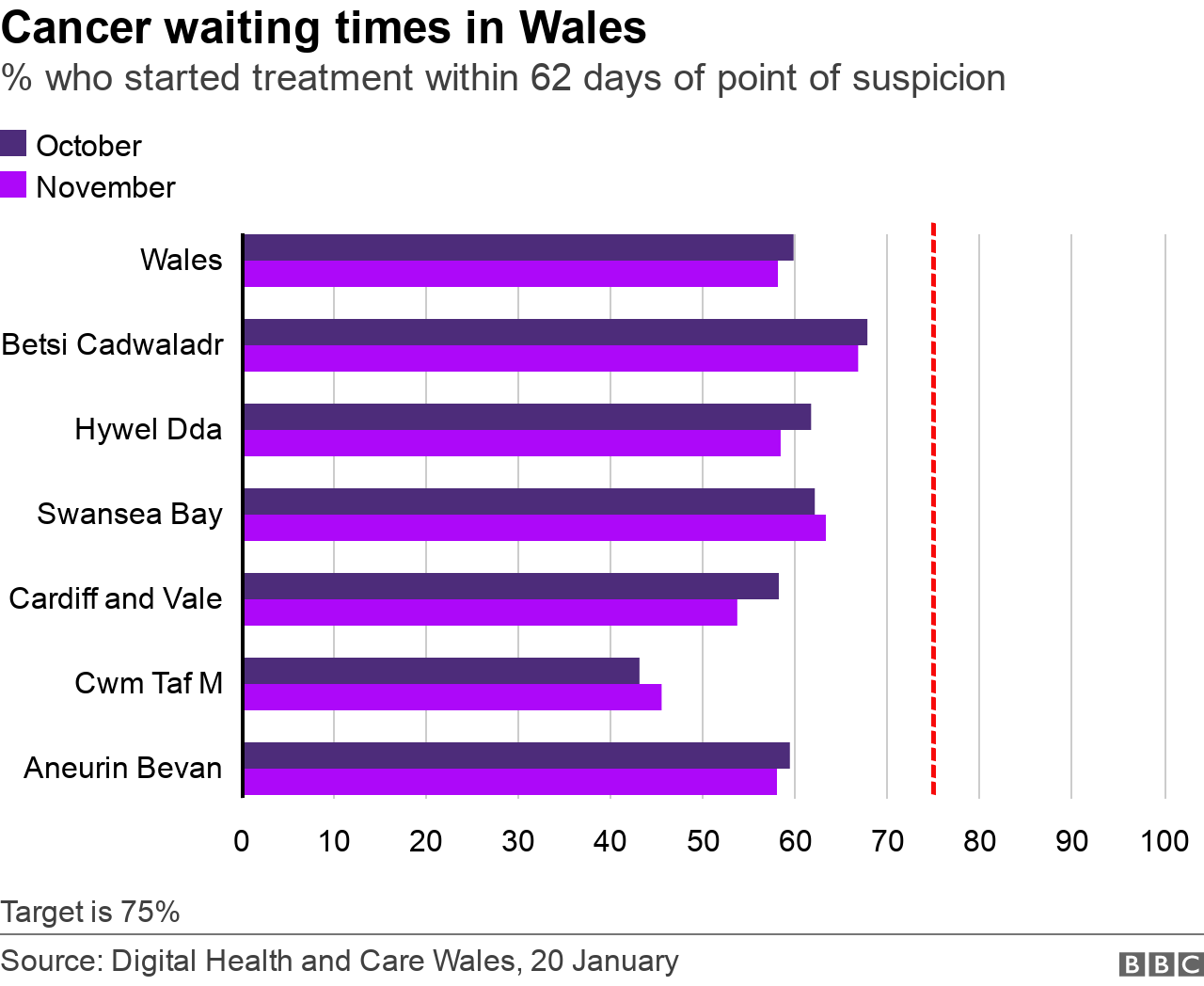

Just under 58% of cancer patients started their first definitive treatment within 62 days of it first being suspected - the second lowest since comparable figures began in June 2019, worse than the previous month and below the target of 75%. That means 741 newly diagnosed patients waited longer than they should have done for treatment to start.
But numbers starting cancer treatment were also the highest since 2019.
Figures showed response times for the Welsh Ambulance Service in December were the second worst on record, with 51.1% of immediately life-threatening red calls receiving a response within eight minutes. The target is 65%.
The average (median) response time to these red calls was seven minutes and 52 seconds, 17 seconds slower than in November.


The number of patients being seen at A&E within the target time also fell in December, with emergency departments recording their second worse month on record.
Figures show 66.5% of patients were seen within four hours - the target set is 95%.
This dropped as low as 43.4% at Wrexham Maelor Hospital, and 49.9% at Ysbyty Glan Clwyd, Denbighshire.
The average time spent in emergency departments in December also increased to three hours and one minute, the second longest since records began nearly a decade ago.
'Completely unacceptable'
Responding to those A&E figures, Consultant in Emergency and Intensive Care Medicine at Morriston Hospital, Swansea Dr Suresh Pillai said he was concerned.
"It's not safe at all. More and more ambulances are getting stuck outside the emergency department," he said.
"This year we've seen a lot of patients staying in the emergency department for more than 72 hours, which is completely unacceptable."
Speaking on BBC Radio Wales' Gareth Lewis programme he added that a recent study by the Royal College of Emergency Medicine in England showed mortality rates increased when patients spent more time in A and E.
"If someone is going to stay in an emergency department for more than eight to 12 hours then we should be worried about their health," added Dr Pillai.
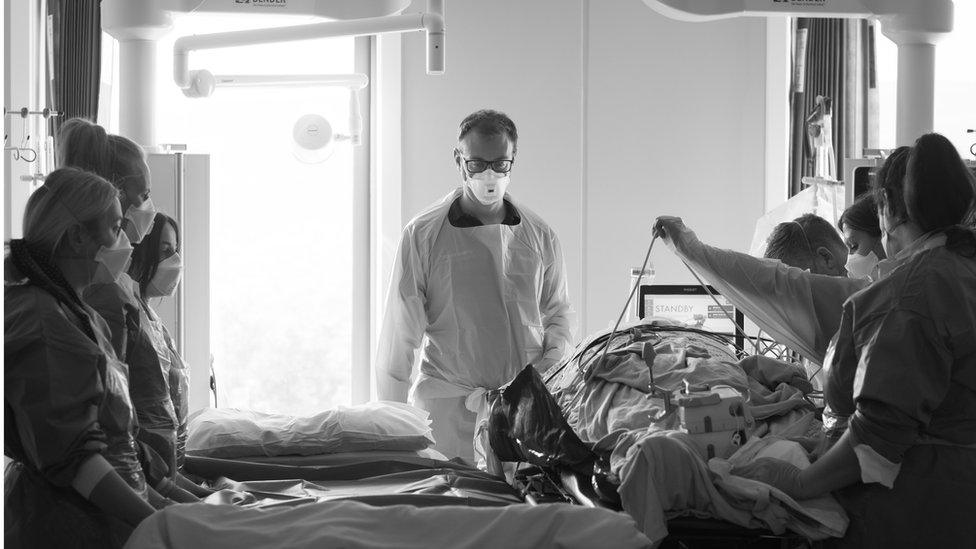
The Welsh government said the increase in those waiting for surgery and treatment was the smallest since the start of the pandemic
Attendances to emergency departments were also 25% higher than the same month in 2020.
But the number of people waiting more than 12 hours in A&E fell in the period.
Overall in Wales, 8,554 patients waited more than 12 hours in A&E, with the target that no-one should wait that long.
A Welsh government spokesperson said: "Our NHS is currently dealing with a hugely difficult winter, whilst facing the gruelling challenges of the Omicron variant, severe winter pressures and staff absences caused by the pandemic."
They added: "The data shows how progress was beginning to be made in planned care in November, before the impacts of the omicron wave were truly felt and exerted considerable winter pressures on the health service. We anticipate next month's data, which will include December, will reflect this."
The British Medical Association in Wales said the figures showed "some light in the Omicron tunnel" but Covid continued to have a huge impact.
"Covid-related admissions are falling and the number of patients completing their treatment was the highest since the start of the pandemic," said Dr David Bailey, chair of the BMA Welsh Council.
"We must do all we can to ensure Covid rates continue to fall - wearing masks, distancing and importantly, getting vaccinated."
The Royal College of Emergency Medicine's vice president Dr Suresh Pillai said that the crisis was leading to distressing stories of long waits.
"The combination of a shortage of both staff and beds and difficulties in discharging vulnerable patients when they've completed treated is causing 'exit block' - where patients are unable to be moved through the system," he added.
- Published20 January 2022
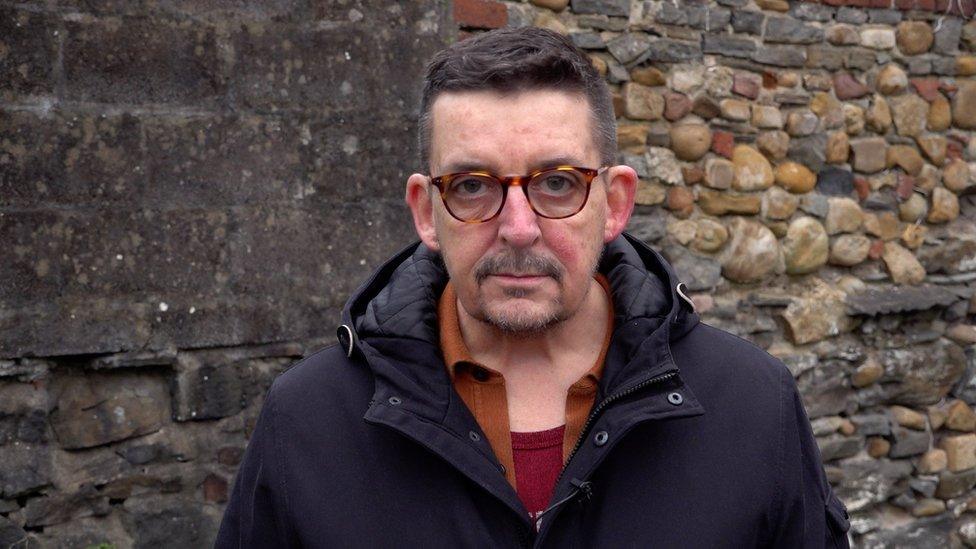
- Published23 December 2021
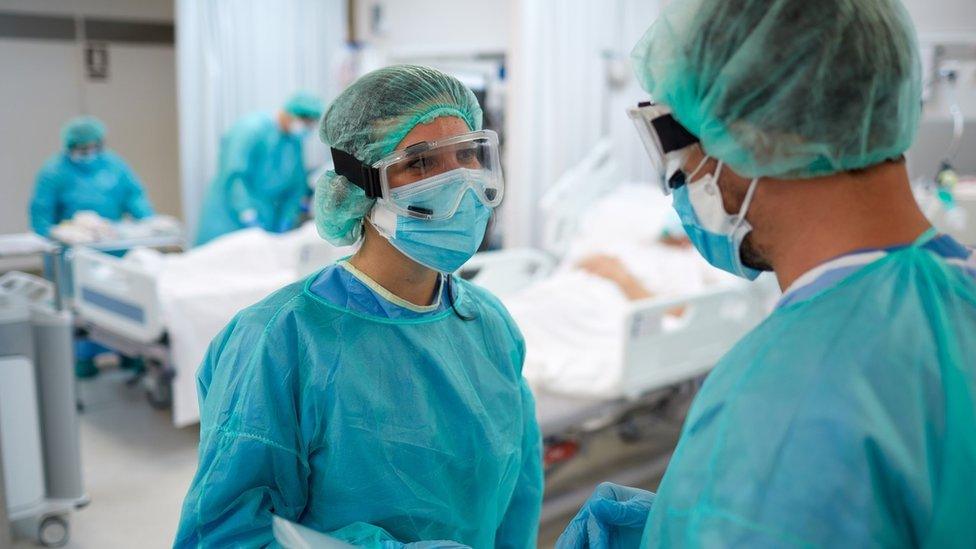
- Published23 December 2021
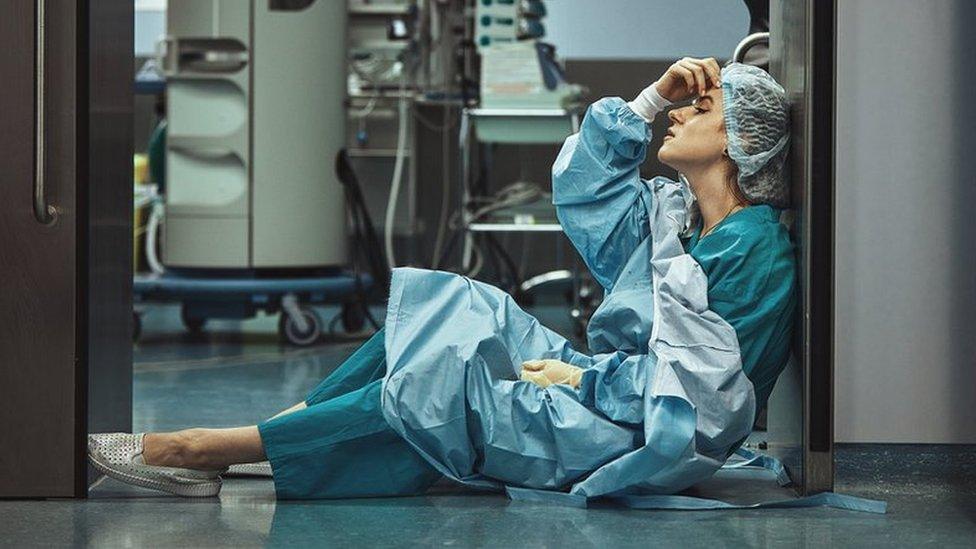
- Published18 November 2021
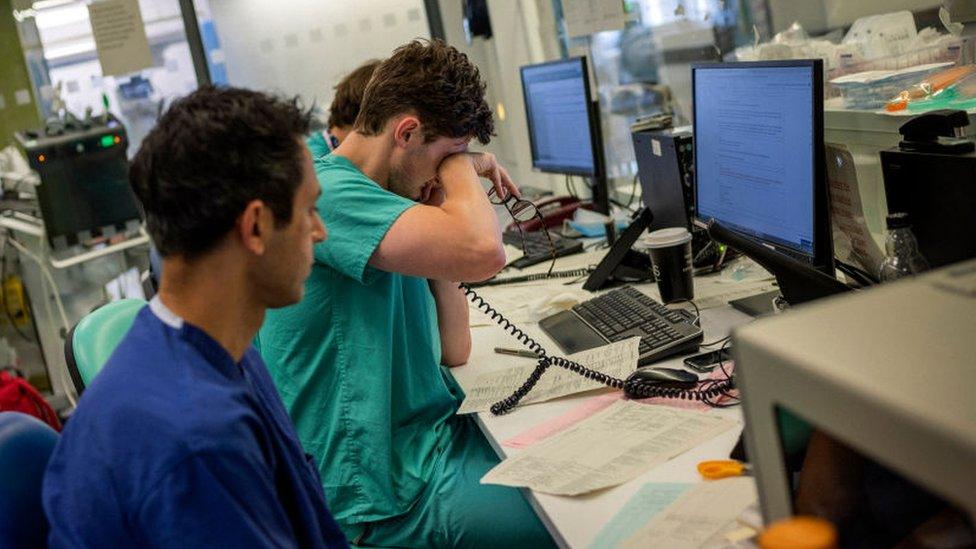
- Published19 August 2021
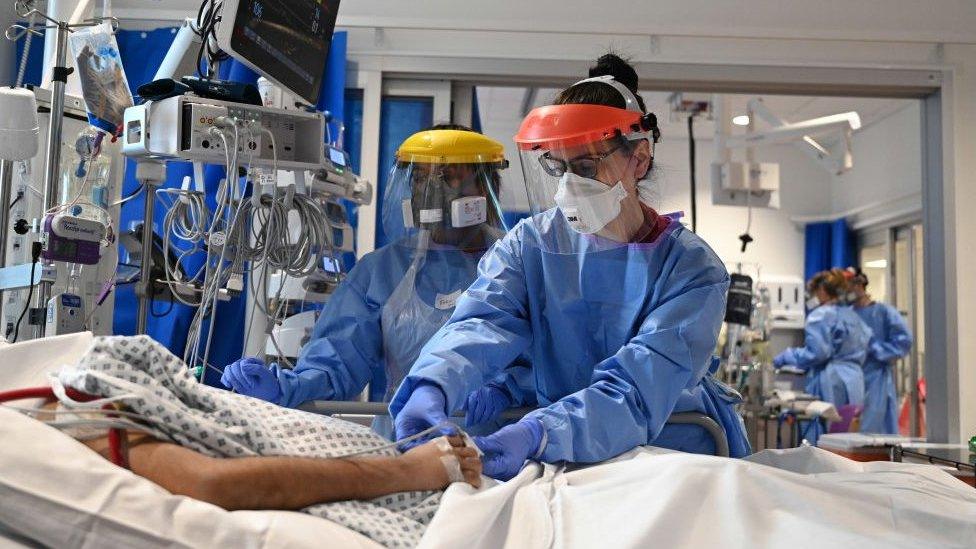
- Published20 December 2021

- Published22 July 2021

- Published18 February 2021
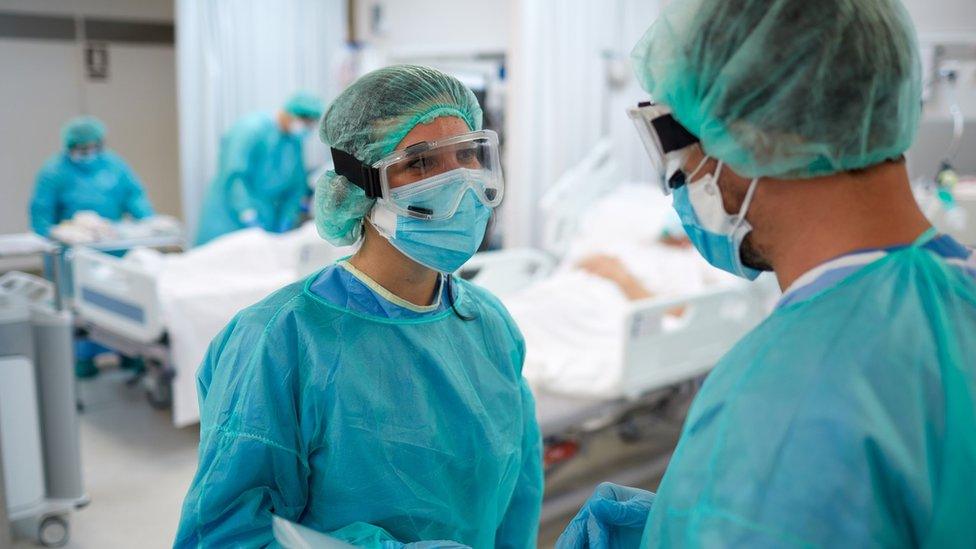
- Published17 June 2021
